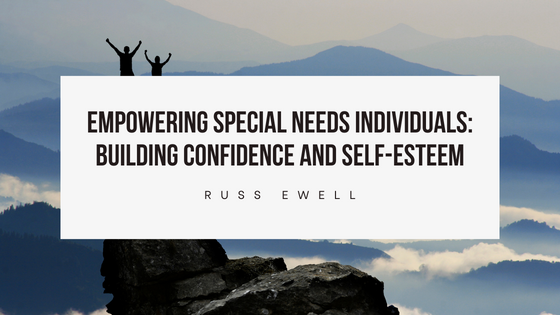Confidence and self-esteem are crucial for every individual’s well-being and success, and this holds especially true for those with special needs. Empowering special needs individuals to build their confidence and self-esteem is a vital aspect of supporting their overall development and quality of life. When individuals with special needs feel empowered, they can navigate the challenges of daily life with greater resilience and independence. It is beneficial to understand strategies and approaches to help foster confidence and self-esteem in special needs individuals.
- Recognize Their Unique Abilities: It’s essential to recognize and celebrate the unique abilities and strengths of individuals with special needs. Focus on what they can do rather than what they can’t. By acknowledging their talents and skills, you can boost their self-esteem and help them realize their potential.
- Set Realistic Goals: Setting achievable goals is a great way to build confidence. Encourage special needs individuals to set small, attainable goals and celebrate their accomplishments along the way. Successes, no matter how small, can be powerful confidence boosters.
- Provide Supportive Environments: Create environments that are safe and supportive. Special needs individuals may face more significant challenges in social situations, so it’s crucial to ensure they feel comfortable and accepted in their surroundings. This can be achieved through inclusive educational programs and supportive communities.
- Encourage Independence: Promote independence by teaching life skills that can enhance their self-reliance. These skills can include basic tasks like dressing, cooking, and managing personal finances. As individuals with special needs become more independent, their self-esteem naturally grows.
- Foster Positive Relationships: Building positive relationships is essential for self-esteem. Encourage special needs individuals to engage in social activities and cultivate friendships. Meaningful connections can provide emotional support and boost their self-confidence.
- Provide Constructive Feedback: Offer constructive feedback that focuses on their efforts and improvements rather than their limitations. Encourage a growth mindset where mistakes are viewed as opportunities to learn and grow.
- Offer Opportunities for Self-Expression: Self-expression can be a powerful tool for building self-esteem. Encourage special needs individuals to explore their interests through art, music, writing, or other creative outlets. These activities can help them discover their talents and passions.
- Promote Physical Activity: Physical activity has been shown to improve self-esteem and overall well-being. Encourage participation in physical activities that match their abilities, whether it’s adapted sports, yoga, or simply going for walks.
- Advocate for Inclusive Education: Inclusive education systems provide opportunities for special needs individuals to learn alongside their peers without disabilities. This not only benefits their academic development but also fosters a sense of belonging and self-worth.
- Be Patient and Supportive: Building confidence and self-esteem is a gradual process. Be patient and provide unwavering support. Special needs individuals may face setbacks, but your encouragement and belief in their potential can make a significant difference.
Empowering special needs individuals to build confidence and self-esteem is a journey that requires dedication and empathy. By implementing these strategies and creating an inclusive and supportive environment, we can help special needs individuals overcome challenges, achieve their goals, and lead fulfilling lives. Remember that every small step toward greater self-confidence is a significant victory on their path to empowerment.

